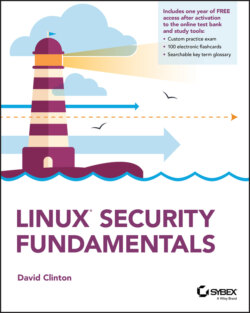Читать книгу Linux Security Fundamentals - David Higby Clinton - Страница 23
Be Aware of Common Threat Categories
ОглавлениеSpam—unsolicited messages sent to your email address or phone—is a major problem. Besides the fact that the billions of spam messages transmitted daily consume a fortune in network bandwidth, they also carry thousands of varieties of dangerous malware and just plain waste our time.
Your first line of defense against spam is to make sure your email service’s spam filter is active. Your next step: educate yourself about the ways spammers use social engineering as part of their strategy.
Spoofing involves email messages that misrepresent the sender’s address and identity. You probably wouldn’t respond to an email from suspiciousguy@darkw3b.com, but if he presented himself as b.gates@microsoft.com, you might reconsider. At the least, recognize that email and web addresses can be faked. Organizations using DomainKeys Identified Mail (DKIM) to confirm the actual source of each email message can be effective in the fight against spoofing.
Phishing attacks, which are often packaged with spoofed emails, involve criminals claiming to represent legitimate organizations like banks. A phishing email might contain a link to a website that looks like it belongs to, perhaps, your bank, but doesn’t. When you enter your credentials to log in, those credentials are captured by the website backend and then used to authenticate to the actual banking or service site using your identity. I don’t have to tell you how that can end.
Always carefully read the actual web address you’re following before clicking—or at the least, before providing authentication details. Spelling counts: gmall.com is not the same as gmail.com. Consider using multifactor authentication (MFA) for all your account logins. That way, besides protecting you from the unauthorized use of your passwords, you should ideally notice when you’re not prompted for the secondary authentication method and back away.
In general, be deeply suspicious of desperate requests for help and unsolicited job offers. Scammers often pretend to be relatives or close friends who have gotten into trouble while traveling and require a quick wire transfer. Job offers can sometimes mask attempts to access your bank account or launder fake checks written against legitimate businesses.
It’s a nasty and dangerous world out there. Think carefully. Ask questions. Seek a second opinion. Always remember this wise rule: “If it’s too good to be true, it probably isn’t.” And remember, the widow of Nigeria’s former defense minister does not want you to keep $34 million safe for her in your bank account. Really.
